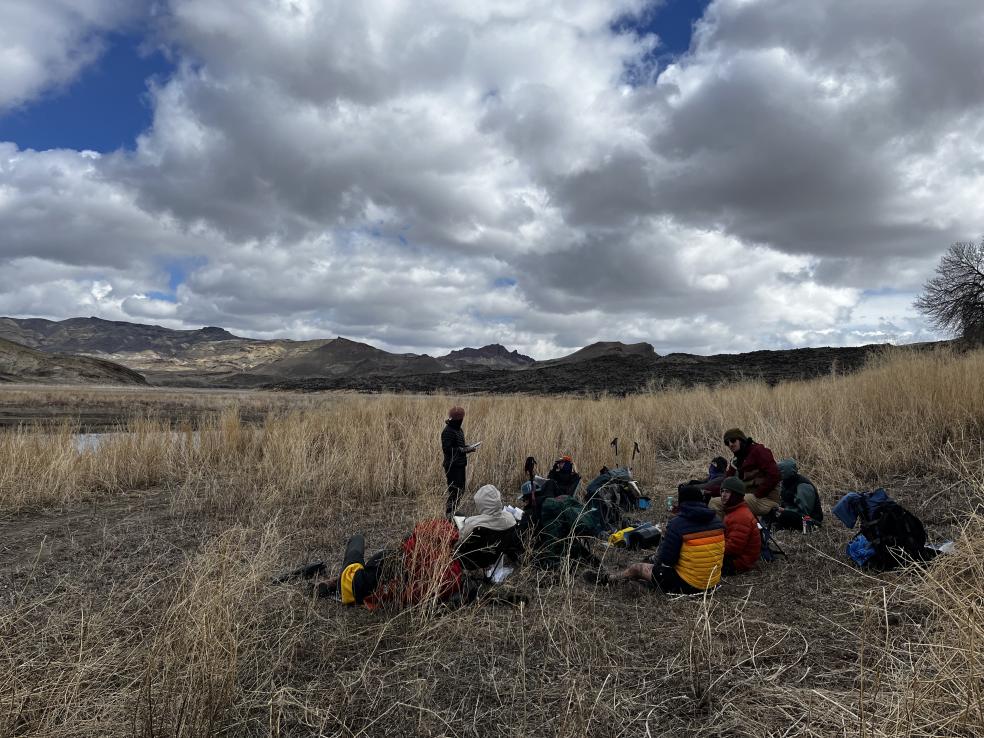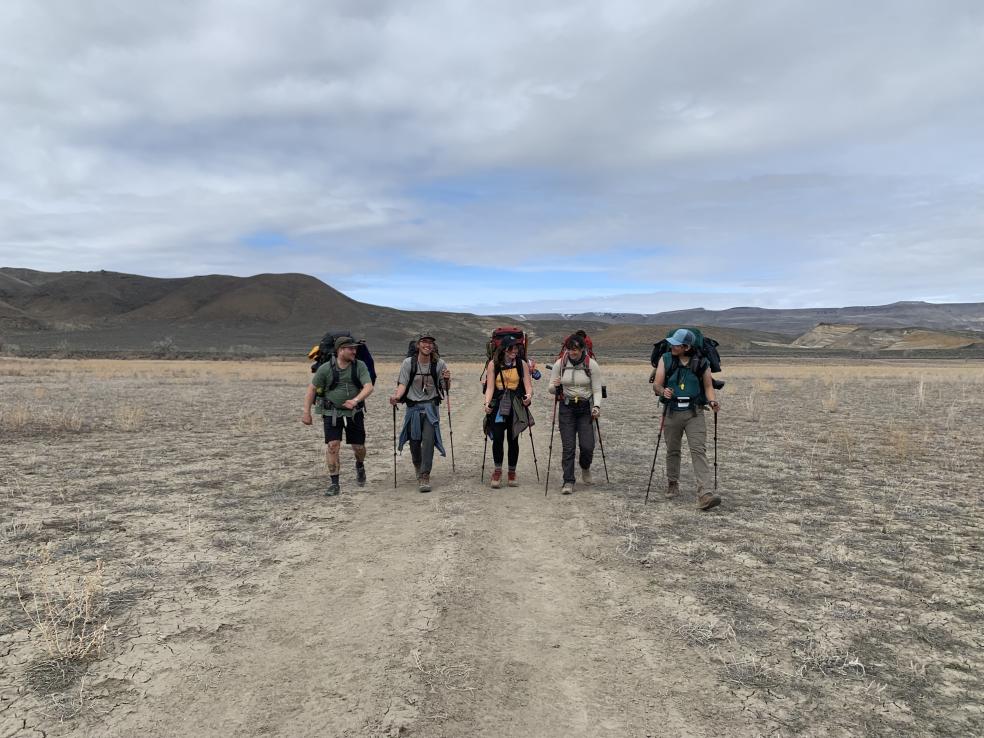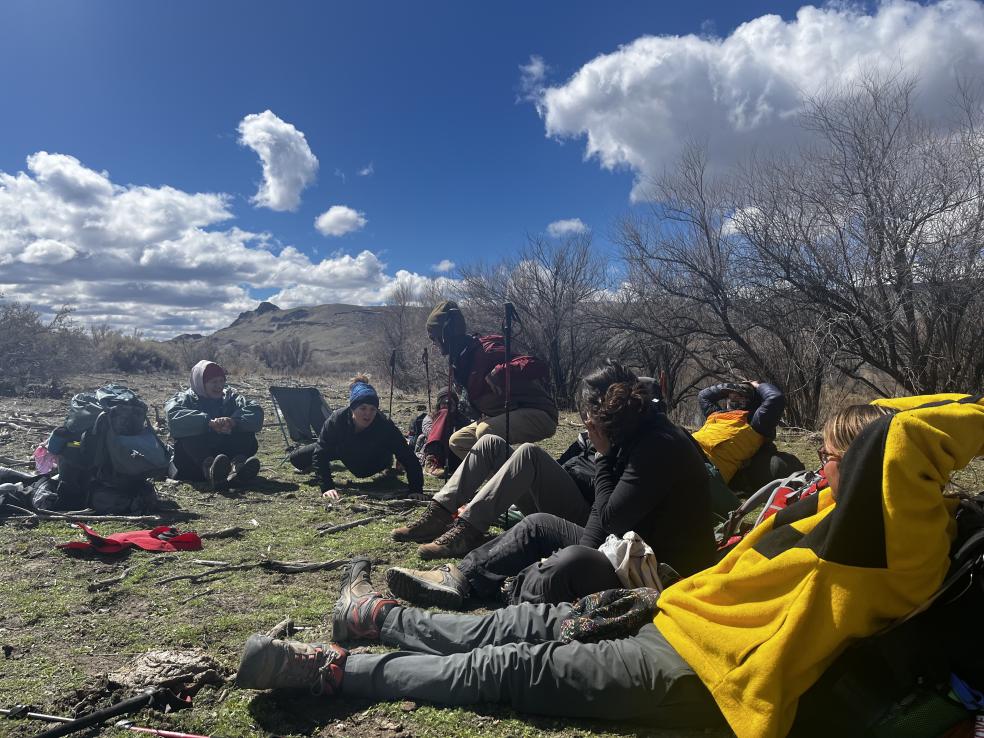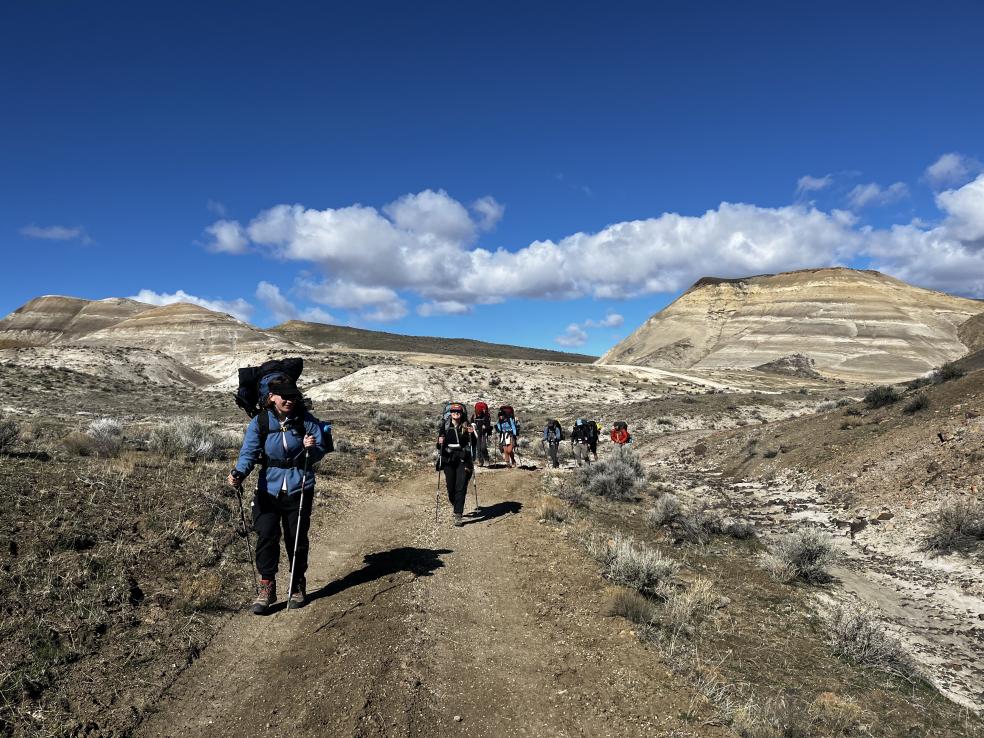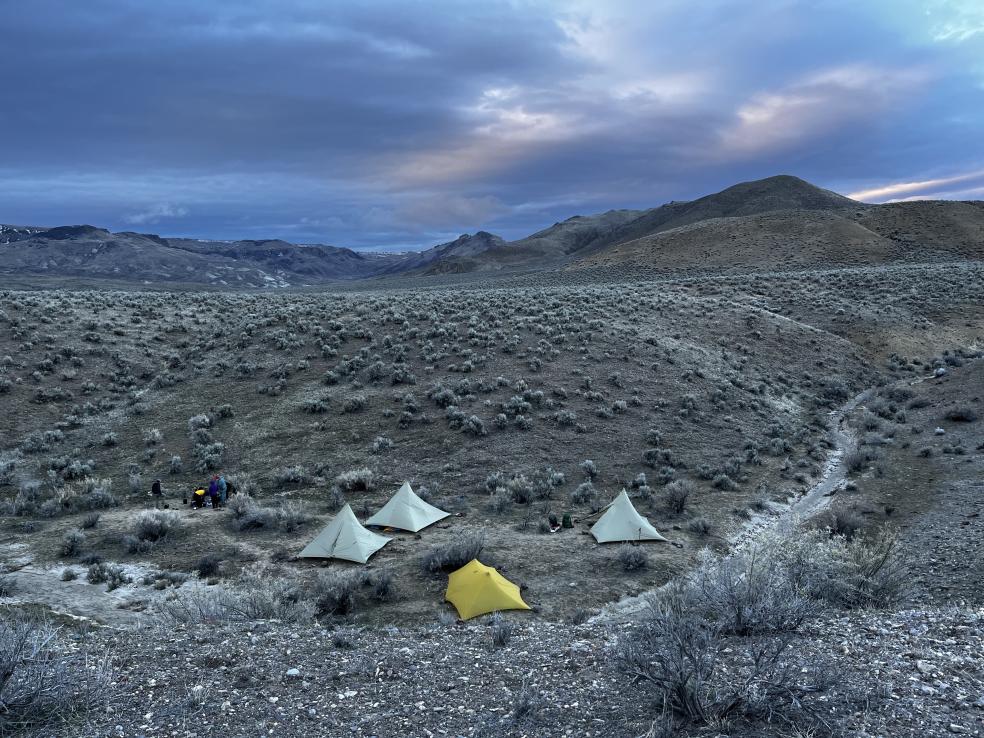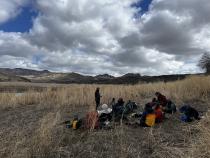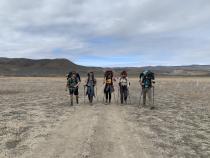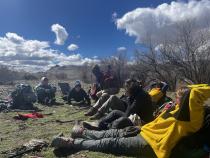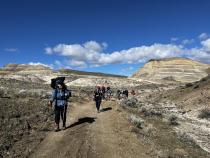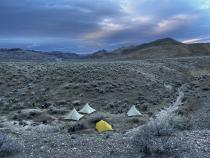The trip is part of the REC 430, a course where students have the opportunity to plan and lead an outdoor expedition. Students contacted land managers, obtained permits, developed meal plans, bought bulk foods, planned routes, organized equipment, and prepared for emergencies, explains Recreation Administration Professor Geneviève Marchand. They also learned how to adapt as they navigated wind, rain, hail, snow—and freezing temperatures. According to Marchand, it dropped down to 20 degrees, which required students to deviate from their original plan to ensure they remained safe.
Students not only learned how to lead, but also how to follow. For example, each day a different pair of students led the group while others delivered feedback. Students were also required to teach one lesson on topics ranging from local flora, fauna, geology, and Indigenous communities. Afterward, they returned from the trip with newly developed skills, and bonds to last a lifetime.
